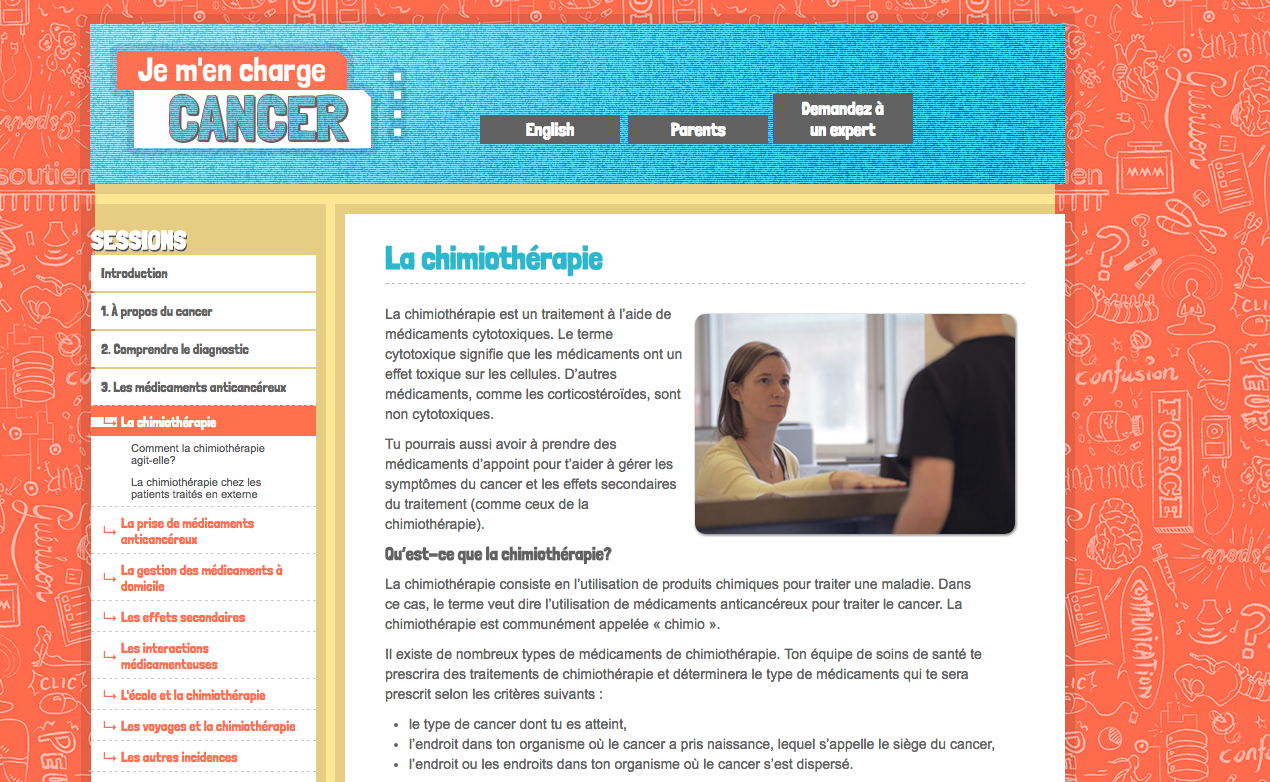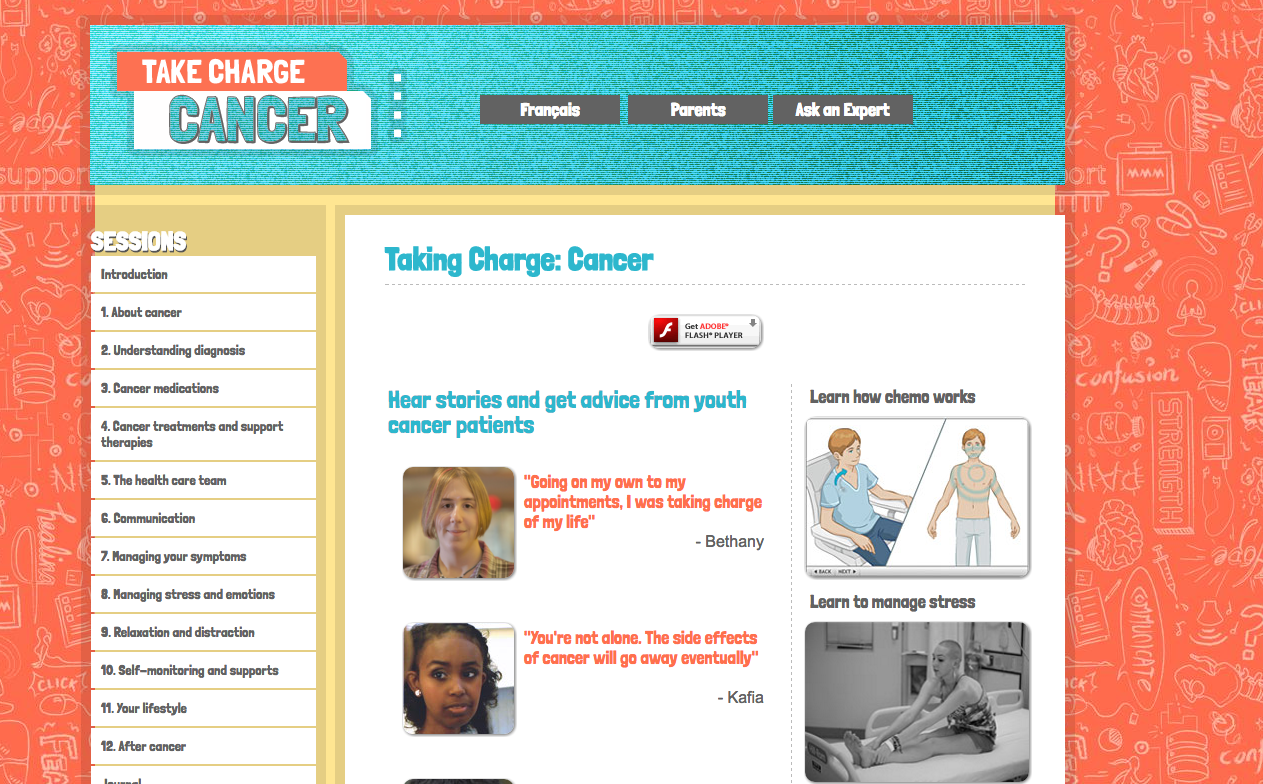Status
Recruitment for the pilot randomized controlled trial is currently underway at four sites across Canada – The Hospital for Sick Children, Children’s Hospital of Eastern Ontario, McMaster Children’s Hospital, Centre hospitalier universitaire Sainte-Justine. Next steps would be conducting a definitive trial in 2018.Click edit button to change this text.
Principal Investigator: Jennifer Stinson
Co-Investigators: Bruce Dick, Argerie Tsimicalis, Abha Gupta, A. Lee Chong, Caroline Laverdiére, France Dupuis, Sylvie Le May, Donna Johnston, Carol Portwine & Vicky Breakey
Funded by: Canadian Institutes of Health Research (CIHR)
Background: With increasing rates of successful outcomes of paediatric cancer treatment, there has been a parallel increase in the appreciation of the acute and long-term medical and psychological sequelae of the cancers and their treatments. Adolescents have been highlighted as a unique patient group in which improvements in cancer outcomes have lagged behind both younger children and older adults, the causes of which are multifactorial. An important contributory factor to this disparity in health outcomes may be the gap between pediatric and adult health care services that leaves many adolescents and young adults vulnerable.
Objective: The overall aim of this program of research is to develop and evaluate the “Teens Taking Charge: Managing Cancer Online” Internet intervention that will help adolescents with cancer to better cope with their disease, improve their health related quality of life, and enhance readiness to transition to adult health care using a sequential phased approach.
Procedure: A single-blinded, pilot randomized controlled trial design will be used to test feasibility of the “Teens Taking Charge: Managing Cancer Online” intervention. 120 English and French-speaking adolescents with cancer will be assigned to the experimental or control groups using constrained randomization. In addition to standard medical care, the experimental group will receive the interactive multi-component self-guided online cancer intervention that consists of cancer specific education, self-management training, transitional skills, and social support strategies that is available in English and French. They will also receive monthly telephone contact with a trained intervention health coach, who will review the previous four weeks homework, knowledge quizzes, and goals determine module completion and answer questions regarding the material; and provide guidance on any issues that have arisen and/or direct them to their health care team.



